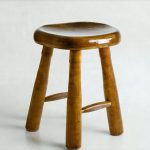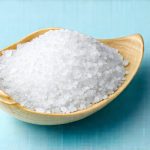Many people experience fluctuations in bowel movements, often tied directly to changes in diet, hydration, stress levels, and even seemingly innocuous habits like caffeine consumption. While occasional shifts are normal, consistently hard stool patterns following periods of high caffeine intake warrant a closer look – not necessarily as a sign of serious illness, but as an indicator that the body’s delicate digestive equilibrium has been disrupted. Understanding why this happens, and what steps can be taken to mitigate it, is crucial for maintaining overall gastrointestinal health and comfort. The link between caffeine and stool consistency isn’t always straightforward; it’s often interwoven with individual sensitivity, hydration habits, and the overall dietary context.
The digestive system is remarkably sensitive to external influences. Caffeine, a stimulant, impacts the body in numerous ways – from accelerating heart rate and increasing alertness to altering gut motility (the movement of food through the digestive tract). A sudden increase in caffeine intake, whether from coffee, tea, energy drinks or even certain medications, can throw off this delicate balance, leading to dehydration, altered muscle contractions within the intestines, and ultimately, harder stools. It’s important to remember that everyone responds differently; some individuals are far more sensitive to caffeine’s effects than others, making it a highly personalized experience. This article will explore the mechanisms behind these changes and offer practical strategies for managing them. If you notice persistent issues, follow-up testing tips can provide valuable insights.
The Physiological Link Between Caffeine and Bowel Movements
Caffeine’s influence on bowel movements isn’t as simple as merely “drying things out.” It’s more complex, involving multiple interconnected physiological processes. Firstly, caffeine is a diuretic, meaning it encourages the kidneys to excrete water. This can lead to dehydration if fluid intake doesn’t compensate for increased urination – and dehydration directly contributes to harder stools because the colon reabsorbs more water from undigested food. Secondly, caffeine stimulates peristalsis, the wave-like muscle contractions that move food along the digestive tract. However, this stimulation isn’t always consistent or beneficial; in some cases, it can lead to rapid transit time without adequate hydration, resulting in a lack of sufficient water absorption and ultimately, harder stools.
Furthermore, caffeine can impact the hormones regulating digestion. It’s been shown to increase levels of cortisol, the “stress hormone,” which can disrupt normal gut function and contribute to constipation or altered bowel habits. The gastrocolic reflex – the natural urge to defecate triggered by food entering the stomach – can also be affected. Caffeine may either amplify this reflex leading to urgency without complete evacuation, or dampen it altogether, contributing to slower transit times. It’s a balancing act that’s easily upset by sudden spikes in caffeine consumption. Understanding stool bacteria ratios can help you better understand your gut’s response.
The type of caffeinated beverage matters too. Coffee, for instance, contains compounds beyond caffeine that can stimulate gastric acid production. While not directly causing hard stools, excessive acid can sometimes contribute to digestive discomfort and potentially affect nutrient absorption which may indirectly impact stool consistency. Energy drinks often contain additional ingredients like sugars and artificial sweeteners, which themselves can have a disruptive effect on the gut microbiome – further complicating the picture. Digestive clues found in repeated testing patterns may help identify sensitivities.
Understanding Dehydration’s Role
Dehydration is arguably the most significant factor linking high caffeine intake to hard stools. When your body loses fluids faster than it takes them in, the colon starts pulling water from stool to maintain hydration levels elsewhere in the body. This process leaves the stool dry and difficult to pass. – The effects are amplified if you aren’t drinking enough water before, during, and after consuming caffeinated beverages. – Even mild dehydration can significantly impact stool consistency.
Recognizing the signs of dehydration is crucial. These include: thirst (though this isn’t always a reliable indicator), dark yellow urine, infrequent urination, fatigue, dizziness, and dry mouth. Proactive hydration is key. Aim for consistent water intake throughout the day, not just when you feel thirsty. Consider carrying a reusable water bottle as a visual reminder to stay hydrated. Electrolyte-rich drinks can also be helpful, particularly after periods of intense caffeine consumption or physical activity. Tracking gut health before and after lifestyle changes can reveal important patterns.
The Impact on Gut Motility & Transit Time
Caffeine’s effect on gut motility is a double-edged sword. While it can stimulate the digestive system initially, this stimulation isn’t always uniform and can actually lead to imbalances in transit time. Rapid transit without sufficient hydration doesn’t allow enough water absorption, leading to potentially looser stools. Conversely, if caffeine disrupts the natural rhythm of peristalsis or triggers a stress response that slows down digestion, it results in slower transit times and increased water reabsorption, causing hard, dry stools. – A healthy gut relies on consistent motility – not overly fast nor excessively slow.
Factors like fiber intake play a crucial role here. Fiber adds bulk to stool, helping it move through the digestive tract more efficiently. If you’re consuming high amounts of caffeine but lacking adequate fiber in your diet, the chances of developing hard stools significantly increase. Similarly, regular physical activity can promote healthy gut motility; a sedentary lifestyle can exacerbate constipation issues. Top early signs from stool tests should always be addressed.
Dietary Considerations & Fiber Intake
A well-rounded diet rich in fiber is paramount for maintaining healthy bowel movements, particularly when navigating periods of high caffeine intake. Fiber acts like a sponge, absorbing water and adding bulk to stool, making it easier to pass. – Aim for at least 25-30 grams of fiber per day from sources such as fruits, vegetables, whole grains, and legumes. – Gradually increase your fiber intake to avoid bloating or discomfort.
Beyond fiber, consider incorporating foods known to promote digestive health. Probiotic-rich foods like yogurt and kefir can help maintain a healthy gut microbiome – crucial for optimal digestion. Magnesium-rich foods (spinach, almonds, black beans) also play a role in muscle function, including the muscles of the intestines. Conversely, limit processed foods, sugary drinks, and excessive amounts of red meat, as these can contribute to constipation. Hydrating fruits like watermelon and cucumbers are excellent choices too. Remember: dietary changes should be gradual and tailored to individual needs and tolerances. If you have recently switched diets, testing can help determine the impact on your digestion.
It’s important to emphasize that this information is for general knowledge purposes only and does not constitute medical advice. If you consistently experience hard stools, abdominal pain, or other concerning digestive symptoms, consult a healthcare professional for proper evaluation and personalized guidance. Markers tracking gut recovery can also be valuable in understanding your overall health.


















